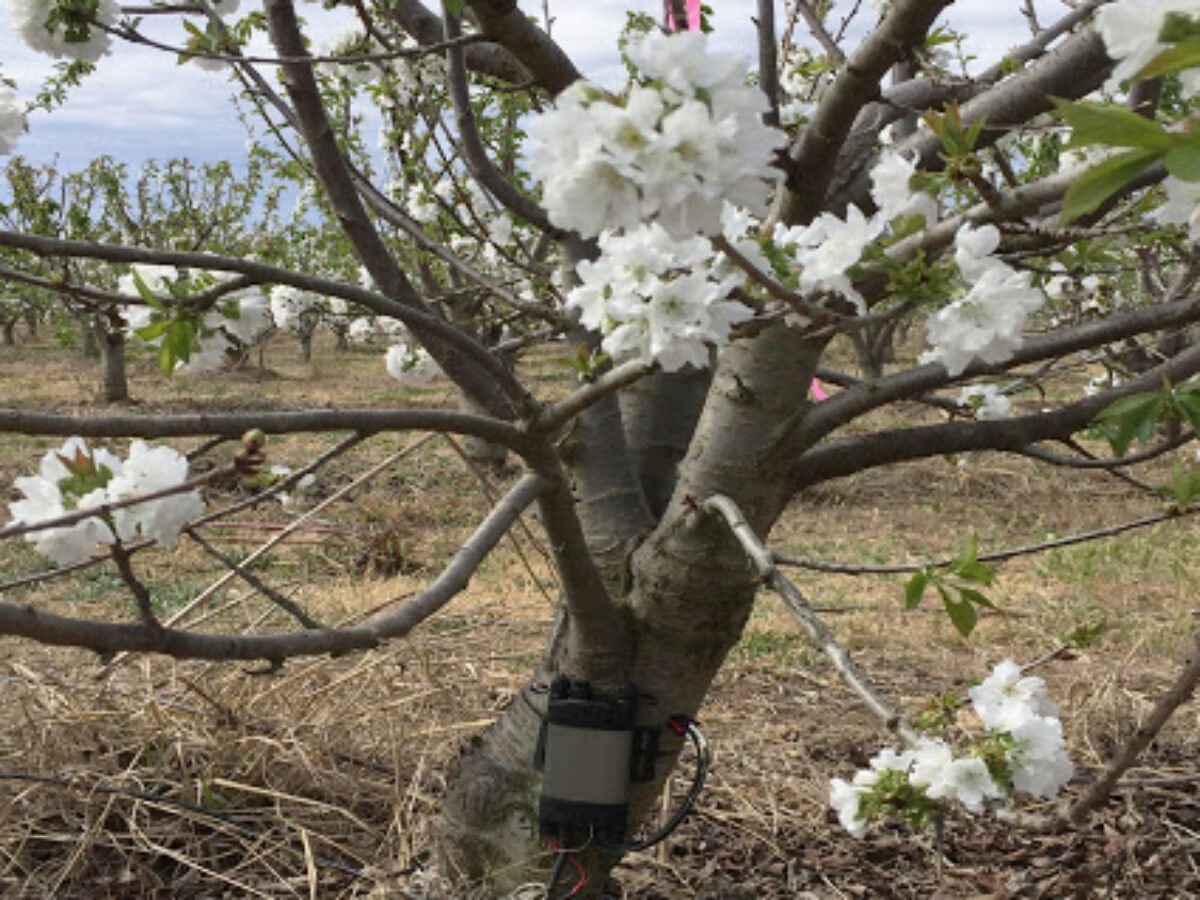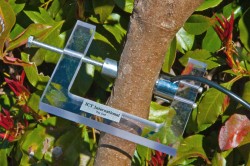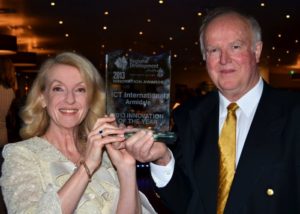Profiles of success: the regional electronics manufacturer that listens to trees

Award-winning electronics business ICT International launched its new production facility in Armidale last week. Brent Balinski spoke to co-founder and CEO Susan Cull about keeping customers in 55 countries happy while operating from “a small country town”.
Armidale is not famous for its logging industry, but one local logging business is making an impact all over the world.
It helps produce countless logs from trees, but not in the way you might’ve guessed. ICT International is a pioneer in sensors and associated communications electronics, used to collect data from plant life and the soil and environment it grows in. Its clients in science and agriculture want to measure and therefore manage the health of green assets more effectively.
“We created a completely new line of plant science instrumentation. There are no other products like this on the world stage,” explains Susan Cull, CEO of the company, which launched a new facility last week.
“A high-end farmer or scientist or someone that wants to manage trees better because they need to understand the water use of a tree be it a crop or a tree in a park or a tree in the rainforest, they use both a sap flow meter and a psychrometer.”
Cull’s husband and the company’s co-founder, Dr Peter Cull, finished a doctorate in irrigation monitoring, spent three years as a CSIRO researcher and then a period as a cotton agronomist before starting ICT in 1982. Around 2006 they saw a niche in developing new solutions to get better insights from plants. ICT ploughed as much as a fifth of its revenues into R&D over the following years and moved from being “a net importer of soil and plant science instrumentation to a net exporter” of its own products.
Today these products include pychrometers (which can reveal the stress a plant is under and the energy needed to reach water) and sap flow meters (which can show how plants respond to environmental changes) as well as tools to check soil moisture and oxygen and other environmental monitoring electronics.
As any newbie gardener quickly finds out, it is easy to give your plants too much or too little water or non-optimal soil nutrients. ICT’s products help take the guesswork out of growing, in the process helping optimise water and land use. According to Susan Cull, one customer growing sandalwood in Darwin was able to cut thousands a month in energy by not over-watering.
Development of ICT’s products has involved six universities in four countries (including University of New England and University of WA in Australia.) Its customers are in 55 countries. ICT’s various sensors are used in conditions ranging from arctic tundra to tropical rainforest and everything in between. According to Cull, demand is highest from Germany and other European nations, followed by China and then North and South America.
“They appreciate that the resource called water is diminishing as population pressure is increasing,” she tells @AuManufacturing.
“And who's going to win in all of this? It better be the forest, otherwise we'd be lucky to have even hessian sacks or a jute belt. The countries that recognise they have to measure and monitor plants’ water use are the ones that are going to have a sustainable living environment for their population.”
Next year it plans to add more jobs through specialist calibration services and “allied IoT initiatives” for the products’ different applications. ICT International currently employs 20 at its site, with a couple of consulting engineers in Sydney.

A stem psychrometer, used “for the measurement of stem water potential. It can continuously log changes in plant water status/potential, which directly reflect the energy required to access water or the stress the plant is under.”
(Picture: au.ictinternational.com)
Running a sophisticated IoT business from Armidale isn’t the easiest thing in the world, but it isn’t impossible. Cull points out that there is access to fibre-to-the-premises internet, FedEx and a decent regional airport.
“We're in a small country town where you can have a sustainable, pleasant lifestyle and still run an international business,” she adds.
“We’ve got space, we've got real estate – it's all doable. You’re not in the ants’ nest of Sydney or Western Sydney, and that would just be totally inappropriate for us.
“We want people to come and cluster around us so that we can expand on our microprocessor-driven technology base here. It would be lovely if we could get people out of Sydney to come here and do high-tech manufacture or assembly or something [related].”
ICT has proved that you can be a globally-relevant, high-tech manufacturer in a regional base. The world isn’t as big as you might think, even when observed from Armidale.
They’re in touch with their market in every timezone every day, says Cull, and the all-important closeness to customers can be maintained from anywhere with modern-day communications and the willingness to get on a plane when you need to.

Susan and Peter Cull (Picture: http://www.rdani.org.au)
The road ahead is all about finessing the company’s sensors and their usefulness on a growing range of communications protocols, such as 4G, Lorawan, Cat M1 and Narrowband IoT.
“We've got data coming off the tundra forest. We’ve got data coming off the tallest trees in the world. There's a farm at Rockhampton, and we had to build a satellite platform for them on a cattle farm,” explains Cull.
“So it's just always about solving a customer’s problem. They want to measure something, and they want the data. And whatever that looks like, that's where we're always looking. That's our passion and the intelligence that drives this company.”
Main picture: ICT International
Subscribe to our free @AuManufacturing newsletter here.
@aumanufacturing Sections
Analysis and Commentary Awards casino reviews Defence Gambling Manufacturing News Online Casino Podcast Technology Videos





